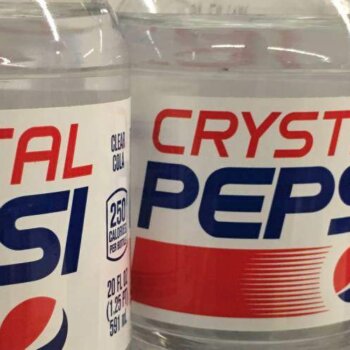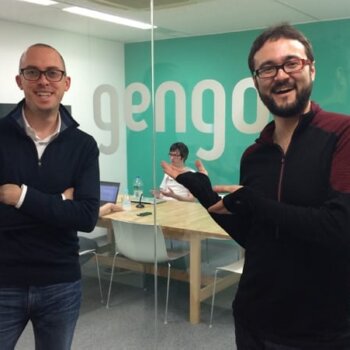Key Takeaway:
Work is a crucial aspect of modern life, with 82% of employees stating that creating meaningful work is a top priority. Meaningful work requires an objective feature that connects the worker with a larger framework that extends beyond themselves. This feature is social contribution, which is the positive difference made by the work and its usefulness in helping others carry out their lives. Sisyphean work fails to meet this standard, and some jobs, such as “lazy girl jobs” and “fake email jobs,” may be seeking to maintain a healthier work-life balance. Work cannot be meaningful if it does no harm to others, and it must be considered if it benefits others or has unintended negative consequences. Meaningful work within organizations can be made more meaningful by involving workers in decision-making processes, such as giving veto powers over strategic decisions or forming worker cooperatives.
Work is an inescapable feature of the modern world. Most of us, except for a lucky few, spend a significant portion of our lives working. If this is the case, we may as well try and make it meaningful. In a 2019 report, 82% of employees reported that it is important to have a purpose in their work and that creating meaningful work was one of their top priorities.
But what exactly makes a particular job an instance of “meaningful work”? Is it just any sort of work people happen to believe is meaningful? Or is it a job with certain objective features?
To answer these questions, we might first think about what makes work meaningless. Take the Greek myth of Sisyphus, whose punishment for misbehaviour was to roll a boulder up a mountain only for it to roll back down just before he reached the top. He had to walk back down and start again, repeating the process forever. Today, we describe laborious and futile tasks as Sisyphean.
The gods knew what they were doing with this punishment – anyone who has spent time doing Sisyphean tasks in their work will understand how soul crushing they can be.
Fyodor Dostoevsky certainly understood this. Partly informed by his own experience in a labour camp, the novelist wrote that: “If one wanted to crush and destroy a man entirely … all one would have to do would be to make him do work that was completely and utterly devoid of usefulness and meaning.”
People may believe such Sisyphean tasks are meaningful (maybe this is the only thing that makes it bearable), but is this belief alone enough to make it so? Many philosophers don’t think so. Instead, they argue that for an activity to be meaningful, it must also contribute to some goal or end that connects the person doing it to something larger than themselves. As philosopher Susan Wolf puts it, meaning requires seeing “one’s life as valuable in a way that can be recognised from a point of view other than one’s own”.
In my own research into the meaning of work, I argue that for a job to be meaningful, it requires some objective feature to connect the worker with a larger framework that extends beyond themselves.
This feature, I suggest, is social contribution: are you making a positive difference with your work? Is your work useful, and does it help others carry out their lives? Confidently answering “yes” to these questions places your work in the larger context of society.
Sisyphean work clearly fails against this standard of social contribution, and so cannot be meaningful. There are, at least according to some studies, a surprising number of jobs like this in modern economies. The recent penchant for “lazy girl jobs”and “fake email jobs” suggest that some young people may actually be seeking out such work as a way to maintain a healthier work-life balance and separate their sense of self from their job.
Do no harm
Another implication of my view is that work cannot be meaningful if it not only fails to help others but actually harms them. Examples might be marketing intentionally defective products, or working in sectors that contribute to the environmental crisis and all its affiliated harms. The phenomenon of “climate quitting” (leaving an employer for environmental reasons) could be seen as the result of people deciding to quit out of a desire for meaningful work.
These examples suggest that a job will not automatically be meaningful just because it contributes to the economy. While market value and social value sometimes overlap (for example, working in a supermarket helps put food in people’s stomachs), these two kinds of value can come apart.
We must think about who benefits from our work, whether their social position means this benefit comes at the cost of others being harmed, and whether there are likely to be unintended negative consequences from our work.

Meaningful work within organisations
On top of just asking whether some jobs positively contribute to others, I also suggest that work will struggle to be meaningful when workers do not experience their contributions as palpable. In other words, can you see the contribution you are making in your work, or do you feel abstract and removed?
This is especially relevant to people with jobs in complex companies or large organisations. Most companies do not give ordinary workers influence over big decisions that affect how the company operates in society (such as decisions about what product to produce or service to offer, which markets it operates in and so on). Instead, this influence is limited to managers and executives.
As a result, workers can easily become disconnected and alienated from the social contribution contained in their work, thereby preventing it from being meaningful for them. Take the following from an auditor of a large bank: “Most people at the bank didn’t know why they were doing what they were doing. They would say that they are only supposed to log into this one system … and type certain things in. They didn’t know why.”
The issue here isn’t that the workers aren’t contributing (banks have an important social function after all), but that in their day-to-day work they are completely removed from how they are contributing.
One way to make more work more meaningful for more people would be to think about how large organisations could more democratically involve workers in these sorts of decisions. This could mean giving workers veto powers over strategic decisions, having worker representatives on company boards, or even turning the company into a worker cooperative.
Research suggests democratic arrangements like these can help people find a sense of meaning in their work by connecting them more closely to the positive outcomes that result from it.





























